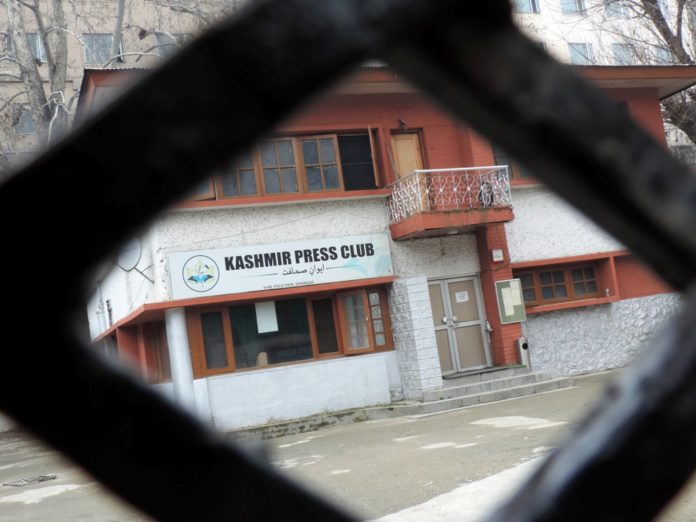As Jammu and Kashmir prepares for assembly polls, the region’s troubled media landscape has come under scrutiny, with two main regional parties acknowledging the crisis and pledging a change, Syed Shadab Ali Gillani reports
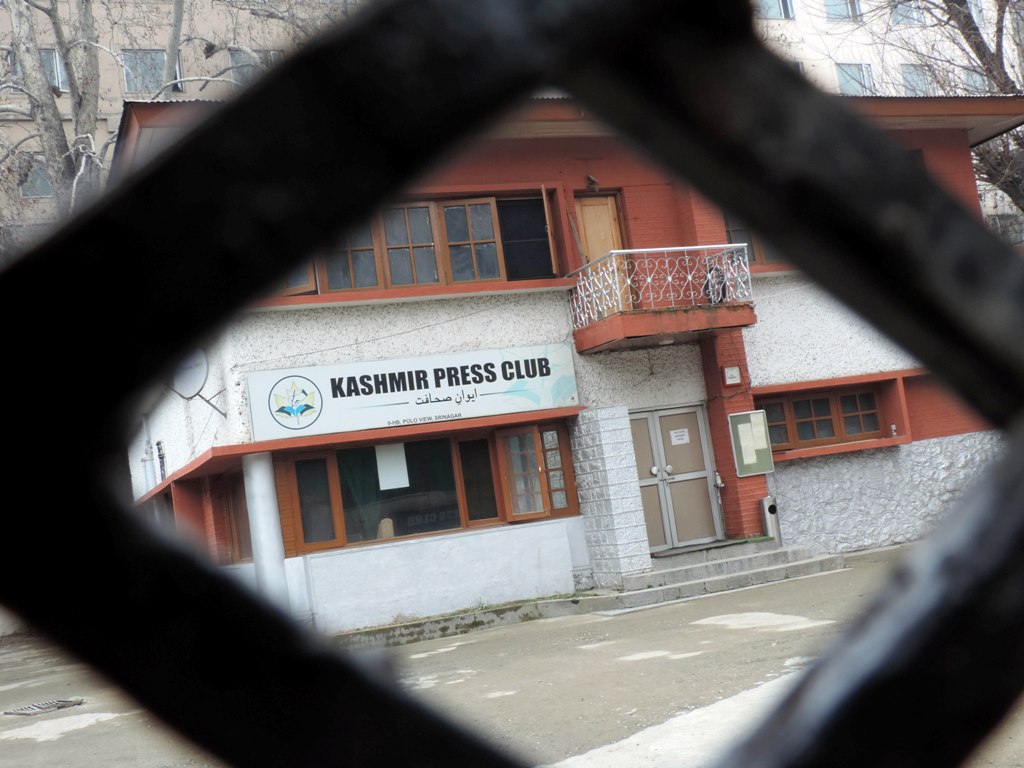
As the assembly elections return after a near-decade-long hiatus, the Jammu and Kashmir National Conference (JKNC) and the People’s Democratic Party (PDP), both major regional political forces, have stood out as the only parties to acknowledge the significance of mass media in their manifestos thus far. The glaring omission in the manifestos of rest of the political parties is the lack of attention to mass media, journalism and the freedom of the press.
In Manifestos
“We recognize the challenges journalists face regarding accreditation and are committed to addressing them effectively,” the JKNC’s manifesto mentions. “We promise to uphold fundamental rights of people in respect of freedom of expression and freedom of press.”
In contrast, the PDP manifesto makes a more detailed commitment, vowing to “prioritise press freedom, restore the autonomy and dignity of the press club, and address the issue of selective curtailment of advertisements to newspapers.” Its leader even said the Kashmir Press Club will be retrieved and restored.
Press Freedom
Though the media in Kashmir has remained always been struggling from the pillar and post of democracy, the post-2019 situation has been hugely challenging.
A report by Newslaundry reveals that 29 journalists have faced government scrutiny since the abrogation of Article 370 in 2019. It has detailed various forms of harassment and questioning. “These include four booked under the UAPA, three detained under the Public Safety Act, six booked over social media posts, eight detained and questioned by the police for their work, nine summoned and questioned by the police without any FIR, and seven whose homes were searched by central agencies.”
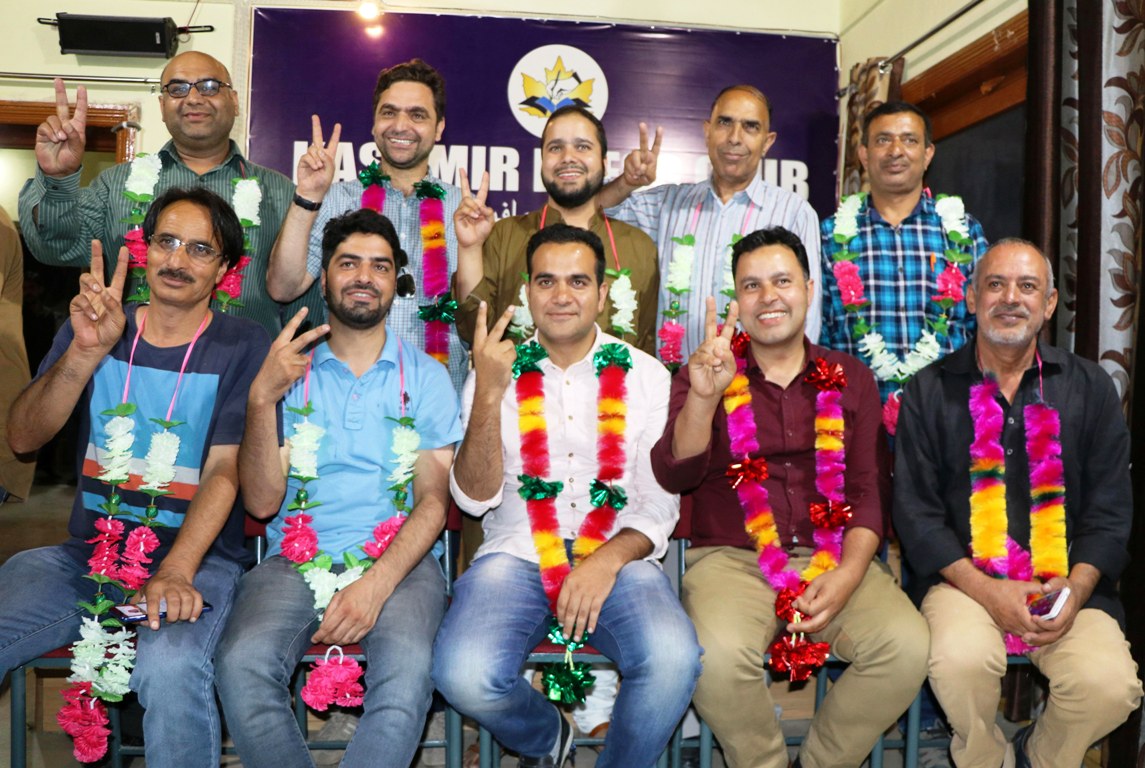
The list of targeted journalists includes contributors to international media outlets including the BBC, The Guardian, AFP, and DW, as well as national media outlets like The Indian Express, The Hindu, and The Economic Times. Local Jammu and Kashmir-based press, including Kashmiriyat, Greater Kashmir, and QNS News Agency have also been affected. Independent media houses like Scroll, and magazines such as Outlook and The Caravan have not been spared either, the report said.
Notable journalists facing government action include Asif Sultan, Fahad Shah, Sajad Gul, Qazi Shibli, and Irfan Mehraj. While most have been released, Irfan Mehraj remains behind bars, and none have been acquitted.
Government Crackdown
A pivotal moment in the erosion of press freedom in Jammu and Kashmir occurred when the once-thriving Kashmir Press Club, the Aiwan-e-Suhafat was forcibly shut down, and journalists’ activities were severely curtailed under constant surveillance. It later was converted into a police establishment.
On January 15, 2022, “a small group of journalists sympathetic to India’s ruling Bhartiya Janata Party stormed the KPC offices in Srinagar, aided by armed police and paramilitary forces,” the International Federation of Journalists (IFJ) said in its report. “This group seized interim control of the organisation, locking the building to prevent journalists from entering.”
There is no government this “journalist” hasn’t sucked up to & no government he hasn’t lied on behalf of. I should know, I’ve seen both sides very closely. Now he’s benefited from a state sponsored coup. https://t.co/POIgQV2Ea7
— Omar Abdullah (@OmarAbdullah) January 15, 2022
In the aftermath of the raid, the regional administration declared on January 17 that the press club had failed to register under the Societies Registration Act and thus “ceased to exist,” the premises consequently handed over to the government.
The Kashmir Press Club management had initiated the re-registration process in May 2021, but due to protracted government processing delays, registration was not granted until December 29, and on January 14, the Registrar of Societies halted the club’s “re-registration” based on a report from the Jammu and Kashmir Police’s Criminal Investigation Department. A collective of journalist associations in Kashmir has denounced the shutdown of the Club, condemning the move as a “dangerous precedent”.
Stifling Dissent
The Government of India has faced accusations of stifling critical journalism in Kashmir with over 40 journalists detained or questioned by police in the region since 2020. Local newspapers and news portals have also been targeted, including The Kashmir Walla, a prominent English language portal and weekly magazine, which was banned entirely in 2023.
“For the past 18 months, we have lived a horrifying nightmare – with the arrest and imprisonment of our founder-editor, Fahad Shah, and the harassment of our reporters and staff, amid an already inhospitable climate for journalism in the region,” the organisation’s statement highlighted the challenges they faced.
On August 19, 2023, The Kashmir Walla’s staff discovered their website was inaccessible, forcing them to shut their Srinagar office. The website was blocked across the country under the IT Act of 2000, according to their server provider, and the publication’s Facebook page, with nearly half a million followers, removed, along with their Twitter account “in response to a legal demand.”
The publication faced further challenges when the staff received an eviction notice from their Srinagar office’s landlord.
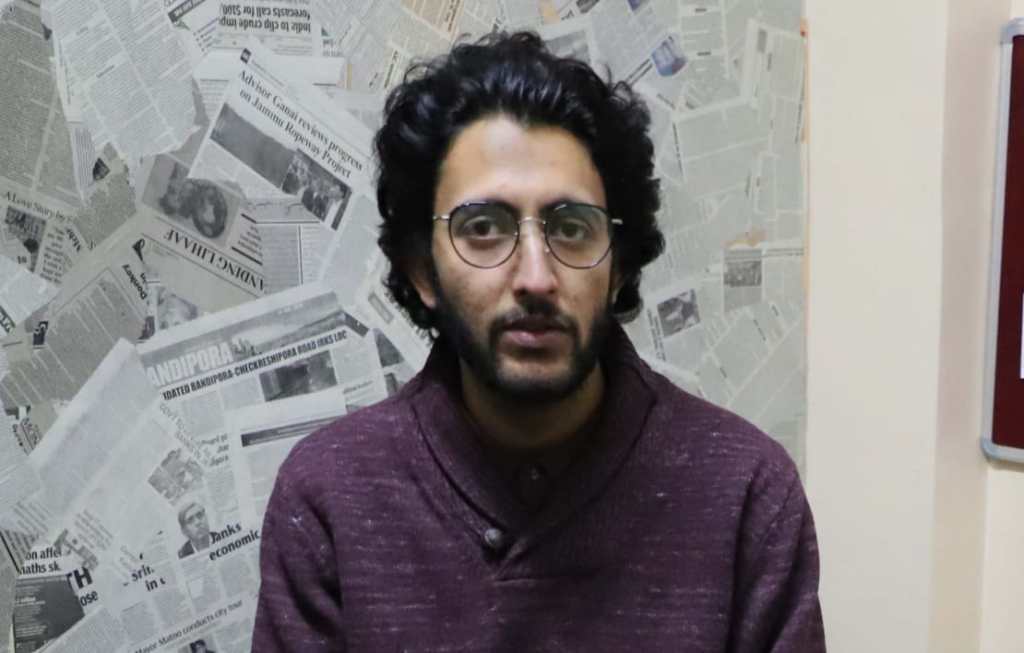
Fahad Shah, its founding editor, was arrested in February 2022 over the coverage of a gunfight, marking the beginning of his recurring arrests. Subsequently, he was arrested five times within four months under three FIRs under the stringent Unlawful Activities (Prevention) Act and one Public Safety Act. In April 2022, the State Investigation Agency (SIA) raided their office as well. Though Shah is out on bail, the outlet has not resumed its work.
In 2016, the then BJPDP government prohibited the publication of the Srinagar-based English daily, Kashmir Reader, deeming it a threat to “public tranquillity”. It resumed publication after two months when the prohibitory orders lapsed on November 20, 2016.
Choking the Free Press
In 2019, the reading down of Article 370 in Jammu and Kashmir was followed by a blanket ban on communication in the region, lasting almost four months. Journalists were among the most severely affected, struggling to perform their duties, leading to a series of protests. Some even fell into menial jobs for supporting their families, albeit for the time being.
The suspension of internet and mobile services significantly impeded their work. “The reliance on official releases and occasional press briefings, which have always been one-way communication, is unsustainable,” a protesting journalist said in 2019. “How long can journalists in the valley continue to rely solely on these limited sources of information?”
Several organisations have also alleged that a “selective curtailment of advertisements” has been imposed, aimed at restricting revenue and hindering the functioning of these organisations. “This has made it very difficult for us to operate,” said a journalist, speaking on condition of anonymity.
A recent report by Voice of America reveals that over 30 news outlets and media houses in Jammu and Kashmir have been denied state advertising, plunging them into a financial crisis.
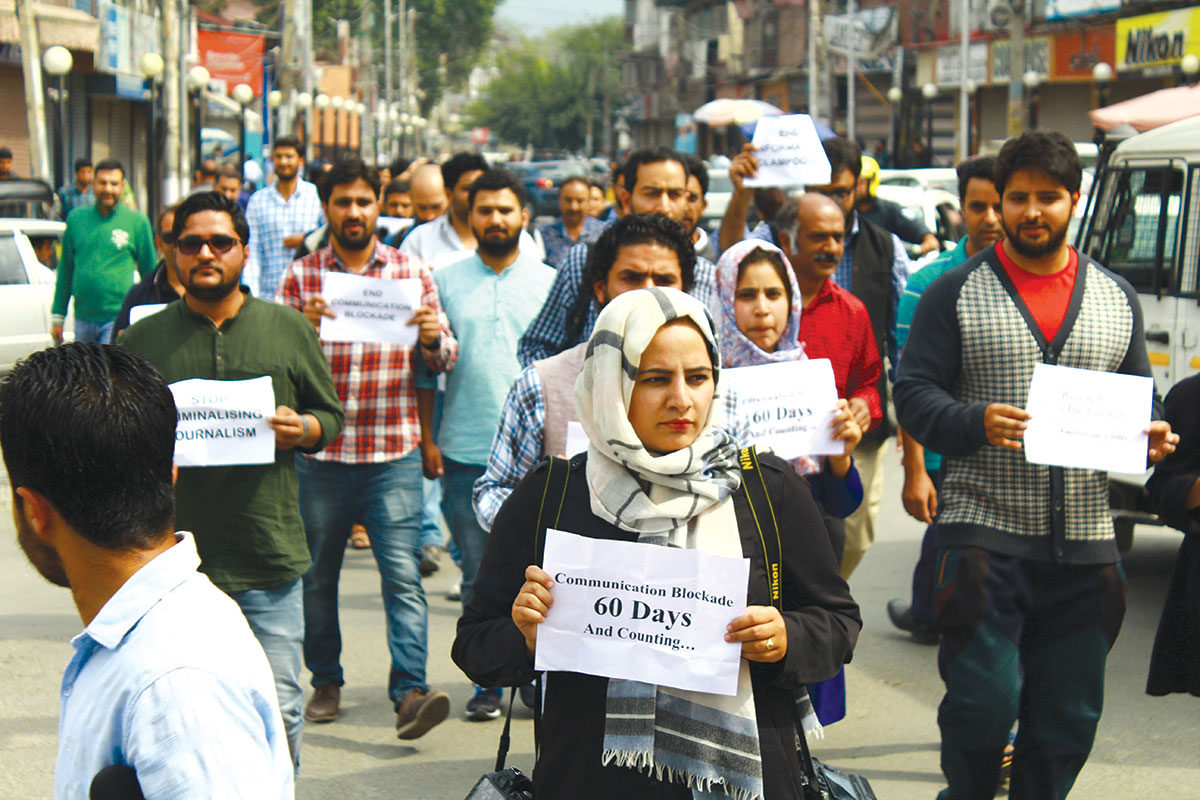
The Department of Information and Public Relations (DIPR) has removed 10 newspapers in Kashmir and 24 publications in the Jammu region from the list of approved outlets eligible for state advertising revenue, a process known as empanelment. While some outlets were informed that their removal was due to non-compliance with requirements such as circulation figures, others were told that they had violated the media policy.
The New Media Policy
The New Media Policy grants the Director of DIPR an absolute authority to immediately halt advertisements to any newspaper found to have misrepresented information, violated guidelines, or failed to meet standards, including minimum circulation figures.
According to the policy, its implementation aims to enhance public trust, increase awareness of government programmes, and combat the spread of false news or attempts to use the media to provoke or “propagate any information prejudicial to the sovereignty and integrity of India.”


